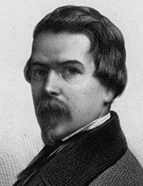

In 1802, the Portuguese government engaged Friedrich Ludwig Wilhelm de Varnhagen, a German-born military officer and engineer, to oversee the São João de Ipanema ironworks in Sorocaba, São Paulo, working under the authority of the intendant José Bonifácio de Andrada e Silva. In 1806, he married Maria Flávia de Sá Magalhães, whose nationality remains uncertain. It was in this town that, on 17 February 1816, Francisco Adolfo de Varnhagen—later known as the most important Brazilian historian of the 19th century—was born, and his life proved extraordinarily eventful from beginning to end. At the age of seven, he left for Portugal with his family. At the end of 1825, in Lisbon, he enrolled at the Real Colégio da Luz, where he received his foundational education. He advanced his military and scientific education at the Navy and Fortification Academies, as well as the Polytechnic School. In July 1833, he became involved in the Portuguese Civil War, siding with Don Pedro’s forces. As a reward, he was awarded the rank of artillery officer. However, according to a letter he wrote to José de Sousa Soares de Andréa, he had neglected to request the requisite licence from the Brazilian government to serve in a foreign army. This delayed the process of recognising his nationality, which was only granted to him by the Brazilian Emperor in 1841. By then, he was already a member of the Academia Real das Ciências de Lisboa [Lisbon Royal Academy of Sciences], the Conservatório Real de Lisboa [Lisbon Royal Conservatory], and the Instituto Histórico e Geográfico Brasileiro [Brazilian Historic and Geographic Institute] (IHGB), founded in 1838 in Rio de Janeiro. In 1842, he was appointed first-class attaché at the Brazilian Legation in Portugal, with the primary mission of researching documents related to the history, geography, and legislation of Brazil. In 1847, he was transferred from Lisbon to Madrid. During this period, he travelled across numerous European countries in pursuit of archives and libraries, and during this time he published his most renowned work: the Historia geral do Brazil [the General history of Brazil] (1854-1857). In 1858, he was appointed as resident minister in Paraguay. In 1864, he married the Chilean Carmen Ovalle y Vicuña, who was from an aristocratic family. After a decade in Latin America, Varnhagen was transferred to Austria in 1868 as resident minister at the court of Francisco José I, Baron of Porto Seguro, in 1872, and then elevated to Viscount of Porto Seguro in 1874. Varnhagen died in Vienna in 1878.
This work is financed by national funds through FCT - Foundation for Science and Technology, I.P, in the scope of the projects UIDB/04311/2020 and UIDP/04311/2020.
